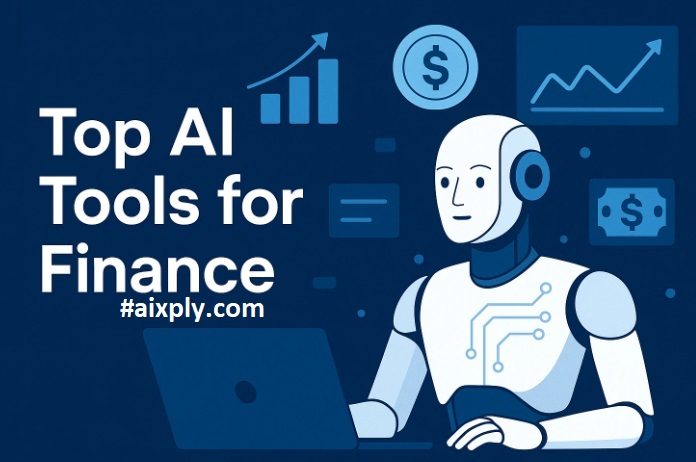
AI-Driven Personal Finance Management for Millennials in 2025
Updated: June 2025 | Category: AI in Finance
Introduction
Personal finance management has always been a critical skill for millennials, a generation facing unique economic challenges such as student debt, fluctuating housing markets, and changing job landscapes. In 2025, artificial intelligence (AI) has become a game-changer in how millennials budget, invest, and plan their financial futures.
From smart budgeting apps that automatically categorize spending, to AI-powered robo-advisors that tailor investment portfolios, AI tools are empowering young adults to make smarter financial decisions with less hassle.
Why Millennials Are Turning to AI for Finance
Millennials, typically defined as those born between 1981 and 1996, are digital natives accustomed to technology simplifying daily tasks. Here’s why AI-driven finance tools resonate deeply with them:
- Convenience: AI tools automate routine finance tasks, saving time and reducing errors.
- Personalization: AI analyzes spending habits, goals, and risk tolerance to offer tailored advice.
- Accessibility: Many AI finance apps are mobile-first, fitting millennials’ on-the-go lifestyles.
- Cost-effective: Robo-advisors and AI budgeting tools often cost less than traditional financial advisors.
Top AI Tools Transforming Millennial Finances
Let’s dive into the best AI-powered finance apps and platforms dominating 2025.
1. Cleo – Your AI Financial Assistant
Features: Automated budgeting, bill tracking, spending insights, and personalized savings challenges.
Cleo uses conversational AI to interact via chat, making finance feel friendly and approachable. It syncs with bank accounts to give real-time advice and alerts.
2. YNAB (You Need A Budget) AI Features
Features: AI-assisted budgeting with predictive cash flow analysis and goal tracking.
YNAB is popular for its zero-based budgeting method, now enhanced with AI to provide forecasts and alerts, helping millennials avoid overspending.
3. Betterment Robo-Advisor
Features: Automated portfolio management, tax-loss harvesting, and goal-based investing.
Betterment uses AI algorithms to build and manage diversified portfolios tailored to individual risk preferences, ideal for millennials starting to invest.
4. PocketSmith AI Budgeting
Features: AI forecasting, cashflow visualization, and scenario planning.
PocketSmith’s AI capabilities help users see the future impact of spending and saving choices, providing a clear path to financial goals.
How AI Budgeting Works
AI budgeting apps analyze your transaction history using machine learning models to categorize expenses accurately — groceries, rent, subscriptions, and more. Over time, the AI learns your spending habits and predicts future cash flows, alerting you if you’re likely to overspend.
Some apps also use natural language processing (NLP) to interact with you via chatbots, making financial management feel conversational and less intimidating.
Robo-Advisors vs Traditional Financial Advisors: A Comparison
| Feature | Robo-Advisors | Traditional Advisors |
|---|---|---|
| Cost | Typically 0.25% – 0.50% of assets under management | Usually 1% or more of assets under management |
| Accessibility | 24/7 online access via app or web | Appointments required, limited hours |
| Personalization | Algorithm-driven, based on risk profile | Human advice with nuanced judgment |
| Minimum Investment | Low to none ($0-$500) | High ($10,000+) |
| Emotional Bias | None — purely data-driven | Possible due to human emotion |
Security & Privacy Concerns with AI Finance Tools
Millennials are understandably cautious about sharing sensitive financial data with AI apps. Leading tools implement strong encryption protocols, multi-factor authentication, and adhere to GDPR and CCPA compliance.
Always check the privacy policy and ensure the AI platform is transparent about data usage and third-party sharing.
Real User Stories
“Using Cleo’s AI assistant has transformed how I save money — it nudges me with friendly reminders and tailored challenges that keep me motivated.” — Sarah, 28, Marketing Specialist
“Betterment helped me start investing with just $100, and its AI portfolio suggestions made me feel confident about my financial future.” — Jason, 33, Software Engineer
Emerging AI Trends in Personal Finance for 2025
- Voice-Activated Finance Management: AI assistants integrated with Alexa, Google Assistant to manage finances hands-free.
- Hyper-Personalization: Using deep learning to create micro-segmentation of users for more tailored advice.
- AI-Driven Credit Scoring: Alternative data sources analyzed by AI to offer fairer credit evaluations.
- Integration with Crypto Portfolios: Managing digital assets alongside traditional investments seamlessly.
Getting Started: How Millennials Can Adopt AI Finance Tools
- Research and choose AI finance apps that fit your goals.
- Connect securely your bank and investment accounts.
- Set up budgets, savings goals, and investment preferences.
- Regularly review AI insights and adjust your financial plans.
- Stay informed about new AI features and updates.
External Resources & Further Reading
- Forbes: Best Robo-Advisors in 2025
- Investopedia: What is a Robo-Advisor?
- CNBC: How AI is Changing Personal Finance
- TechRadar: Best Budgeting Apps 2025
Conclusion
AI-driven personal finance management is no longer a futuristic idea but a present-day reality, especially for tech-savvy millennials. These tools are helping a generation to navigate complex financial landscapes with confidence, efficiency, and personalization. Whether you want to budget smarter, invest wisely, or simply keep better track of your money, AI is here to assist.
Stay ahead in 2025 by embracing these intelligent finance tools, and turn your financial goals into achievable milestones.
“The future of finance is AI-powered, and millennials are leading the charge.” — Aixply.com
